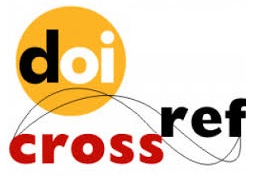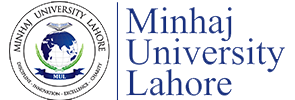Parental Involvement and Students’ Academic Performance at Higher Secondary Level
DOI:
https://doi.org/10.58932/MULI0006Keywords:
parental involvement, academic performance, higher secondary levelAbstract
At the higher secondary level, parental involvement continues to be a significant predictor of students' academic performance. This abstract explores the relationship between parental engagement and academic success among students in this educational stage. Research consistently highlights the positive impact of parental involvement on students' learning outcomes, with active parental participation being associated with higher grades, increased motivation, and better overall academic achievement. However, the level and nature of parental involvement may vary depending on cultural, socioeconomic, and individual factors. The population was comprised of all higher secondary level of Lahore district. The instrument was questionnaire. The results indicate that understanding the dynamics of parental involvement at the higher secondary level is crucial for educators, policymakers, and parents alike, as it can inform strategies to enhance student learning experiences and promote academic success.
References
Berkowitz, R., Astor, R. A., Pineda, D., DePedro, K. T., Weiss, E. L., & Benbenishty, R. (2021). Parental involvement and perceptions of school climate in California. Urban Education, 56(3), 393-423.
Bhutto, E. S., Siddiqui, I. F., Arain, Q. A., & Anwar, M. (2020). Predicting students’ academic performance through supervised machine learning. Paper presented at the 2020 International Conference on Information Science and Communication Technology (ICISCT).
Government of Punjab (2022). College and higher secondary school teachers' statistics. Higher Education Department.
Anjum, G., & Bhatti, M. A. A. Discover the Impact of Internet Usage on the Academic Performance of Library and Information Science Students. Indonesian Journal of Multidiciplinary Research, 4(2), 377-388.
Hornby, G., & Lafaele, R. (2011). Barriers to parental involvement in education: An explanatory model. Educational Review, 63(1), 37-52.
Novianti, R., & Garzia, M. (2020). Parental engagement in children's online learning during covid-19 pandemic. Journal of Teaching and Learning in Elementary Education, 3(2), 117-131.
Ribeiro, L. M., Cunha, R. S., Silva, M. C. A. E., Carvalho, M., & Vital, M. L. (2021). Parental involvement during pandemic times: Challenges and opportunities. Education Sciences, 11(6), 302.
Tan, C. Y., Lyu, M., & Peng, B. (2020). Academic benefits from parental involvement are stratified by parental socioeconomic status: A meta-analysis. Parenting, 20(4), 241-287.
Wilder, S. (2023). The role of parental involvement in academic achievement: A meta-analytic review. Educational Research Review, 4(3), 100-121.
Zucker, T. A., Maldonado, G. Y., Assel, M., McCallum, C., Elias, C., Swint, J. M., & Lal, L. (2022). Informal science, technology, engineering and math learning conditions to increase parent involvement with young children experiencing poverty. Frontiers in Psychology, 13(3), 1015590.








